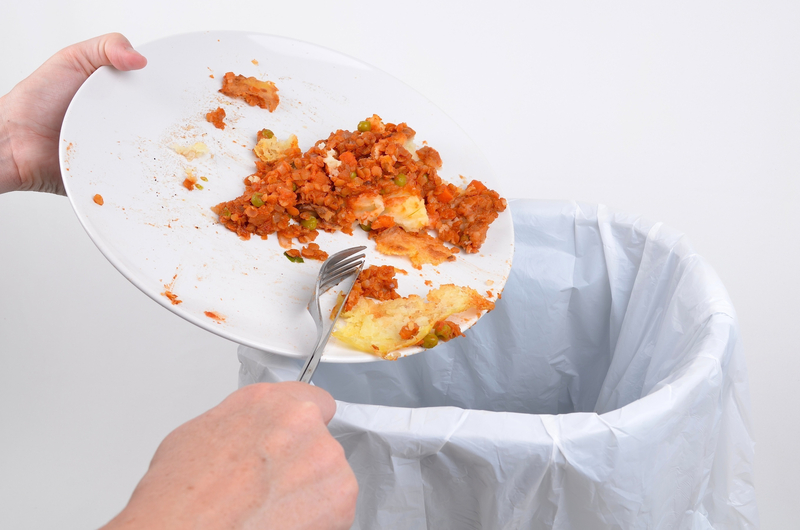Making the Most of Old Cookware through Responsible Disposal
Old pots, pans, and kitchen utensils often find themselves relegated to the back of cupboards, tossed in landfills, or simply forgotten. However, knowing how to responsibly dispose of old cookware not only reduces environmental impact but also offers creative and sustainable ways to breathe new life into your kitchen relics. In this guide, we'll explore the various methods of decluttering your kitchen sustainably, from recycling and upcycling to donating and repurposing--turning what once was junk into newfound treasure.
Why Responsible Disposal of Old Cookware Matters
The question of how to get rid of old pots and pans goes beyond a simple cleanup. Traditional disposal methods can have far-reaching consequences:
- Landfill Overflow: Non-biodegradable cookware may sit in landfills for centuries.
- Toxic Waste: Nonstick coatings and synthetic materials can leach harmful chemicals.
- Waste of Resources: Many old kitchen items contain recyclable metals and plastics.
By disposing of cookware responsibly, you help reduce landfill waste, conserve resources, and even support local communities.

Understanding Cookware Materials and Their Recyclability
Before embarking on your eco-friendly cookware journey, it's essential to identify what your old cookware is made from. Different materials require different disposal methods:
Common Cookware Materials
- Stainless Steel: Durable and highly recyclable.
- Aluminum: Lightweight, also broadly recyclable.
- Copper: Valuable and easily repurposed or recycled.
- Cast Iron: Heavy, tough, and recyclable, often upcycled.
- Nonstick/PFOA Cookware: Trickier to recycle due to coatings; needs special handling.
How to Tell What Material Your Cookware Is
- Look for Stamps or Labels: Most cookware has branding or metal types embossed.
- Magnet Test: Stainless steel is often magnetic; aluminum and copper are not.
- Visual Inspection: Distinct shine, weight, and color differences set metals apart.
Recycling Old Pots and Pans
Recycling is often the best first step for old, unusable cookware. Here's what you need to know:
Can You Put Cookware in Your Curbside Recycling?
Most municipal curbside programs do not accept cookware due to size, weight, and mixed materials. Instead, consider:
- Local scrap metal yards
- Specialized recycling centers (search for "metal recycling near me")
- Community recycling events
Make sure to remove any wood, plastic handles, or glass lids before recycling.
Special Considerations for Nonstick and Coated Cookware
- Nonstick coatings often contain PTFE or PFOA: These require special processing. Contact your recycling center before dropping them off.
- Remove plastic handles if possible for easier recycling.
Some cookware brands offer take-back programs--check manufacturer websites for responsible cookware disposal initiatives.
Donation: Giving Cookware a Second Life
Just because your old cookware is outdated for your needs doesn't mean someone else couldn't use it. Donating old cookware extends its usefulness and helps those in need.
Best Places to Donate Old Cookware
- Local thrift shops or charity stores
- Homeless shelters or soup kitchens
- Community centers or churches
- "Buy Nothing" neighborhood groups on social media
Be sure to clean your cookware thoroughly before donating. Avoid donating items with significant wear, deep scratches, or flaking nonstick surfaces.
Creative Upcycling Ideas for Old Pots and Pans
If recycling or donating isn't an option, why not get creative? Upcycling old cookware can turn trash into treasure, providing new function and style for your home and garden.
Home Decor Projects
- Wall Art: Arrange colorful pans or lids as quirky kitchen wall hangings.
- Clocks: Turn a frying pan or pot lid into an eye-catching wall clock.
- Storage Racks: Use deep pans as catchalls in entryways or offices.
Garden and Outdoor Uses
- Planters: Drill holes in the base and fill with soil for unique herb or flower pots.
- Bird Feeders/Baths: Re-purpose large shallow pans as feeders or mini bird baths.
- Garden Tools: Old ladles and spatulas are handy for scooping soil or seeds.
Crafting with Kids
- Paint and decorate pans for use in imaginative play.
- Construct percussion instruments from pots and lids.
Upcycling old kitchenware isn't just environmentally friendly--it's fun and fosters creativity for the whole family.
Repurposing: Beyond Upcycling
Repurposing cookware takes things a step further, giving functional new purposes to items that may not visually fit modern kitchens. Consider these tips:
- Use old pots for storage in garages, basements, or closets.
- Repurpose lids as trays for keys, coins, or jewelry.
- Transform baking sheets into magnetic boards for notes or spice jars.
- Convert muffin tins into organizers for hardware, beads, or craft supplies.
Responsible Disposal: What to Avoid
Not all disposal methods are created equal. Avoid these common pitfalls:
- Landfilling: Only as a last resort if no recycling or reuse options exist.
- Improper dumping: Never abandon cookware in parks or on streets.
- Burning: Melting or burning pans can release toxic fumes.
Tips for Maintaining Cookware to Extend Its Life
The most sustainable form of responsible disposal is prolonging your cookware's usefulness. Adhere to these simple tips to make cookware last longer:
- Use the right utensils: Avoid metal on nonstick surfaces.
- Hand wash when possible: Dishwashers can degrade certain finishes.
- Avoid high heat: Overheating reduces nonstick and metal longevity.
- Follow manufacturer care instructions: Especially for specialty or coated pans.
Even when no longer suitable for kitchen tasks, well-maintained cookware is easier to donate, recycle, or upcycle.
How to Prepare Cookware for Disposal or Repurposing
Whether recycling or donating, proper preparation is key to responsible cookware disposal:
- Thorough cleaning: Remove all food residues and grease.
- Disassemble multi-part items: Separate different materials as much as possible.
- Check for hazards: Make sure no sharp edges are exposed; sand down burrs if needed.
For repurposing and upcycling, prepping may include removing handles, painting surfaces, or drilling drainage holes. Make sure safety comes first during every step!

Frequently Asked Questions about Responsible Cookware Disposal
Can all types of pans be recycled?
Most metal cookware can be recycled at scrap yards. Nonstick, enameled, or ceramic-coated items may require special facilities.
Should I throw away cookware with damaged nonstick surfaces?
If the nonstick is severely scratched or flaking, avoid donating or reusing it for food. Instead, explore recycling or repurposing options.
How do I know if a cookware recycling program exists in my area?
Check with your local waste management authority, municipality website, or search for "scrap metal recycling near me."
Is it safe to reuse old cookware in the garden?
If you're using pans as planters, avoid those with flaking coatings or rust. Pure metals like stainless steel, cast iron, or aluminum are generally safe for outdoor use once cleaned.
Conclusion: Turning Old Cookware into Opportunity
Discarding old pots and pans doesn't have to mean contributing to growing landfills or environmental degradation. With a bit of effort and creativity, making the most of old cookware through responsible disposal benefits your home, your community, and the planet. Whether you choose to recycle, donate, upcycle, or repurpose, every step counts toward a greener, more sustainable future.
Remember: Where you see clutter, there's an opportunity. Next time you clean out your kitchen, choose responsible disposal options for your cookware and inspire others to do the same.
Key Takeaways for Sustainable Cookware Disposal
- Identify your cookware's material and research local recycling options.
- Consider donation, especially for gently used items.
- Get creative with upcycling and repurposing unused pots or pans.
- Never dump or burn cookware irresponsibly.
- Maintain your kitchenware to extend its useful life and reduce waste.
For more tips on sustainable living and responsible waste management, follow our blog and share your own creative cookware upcycling projects!
